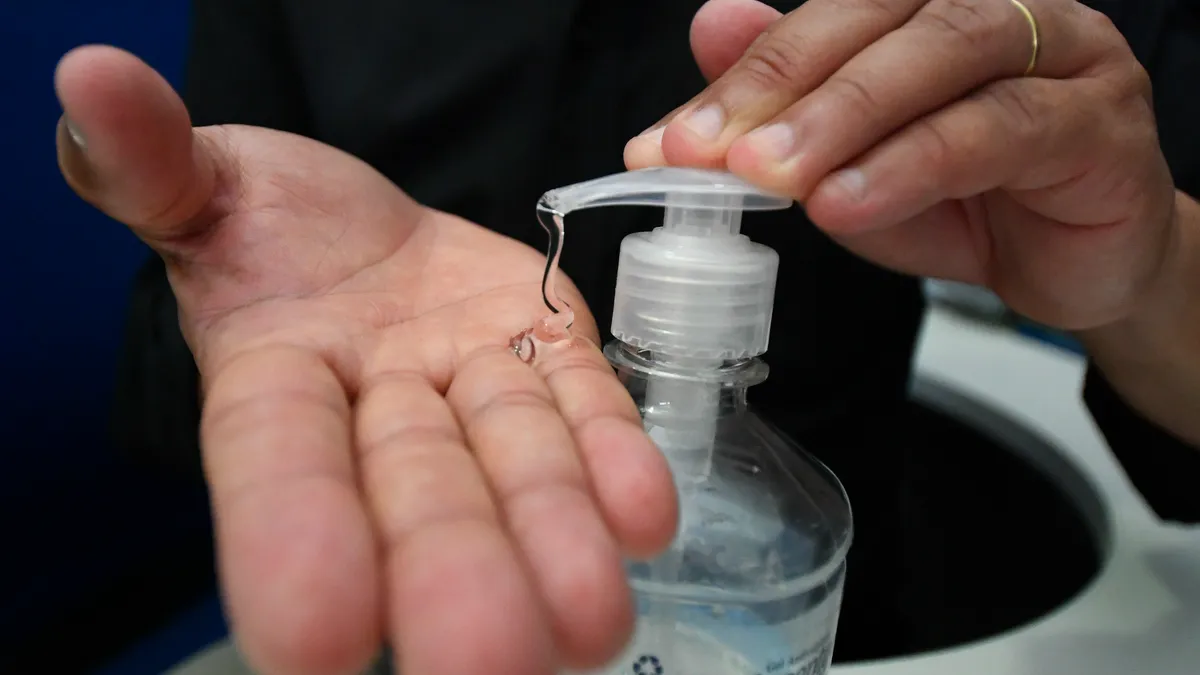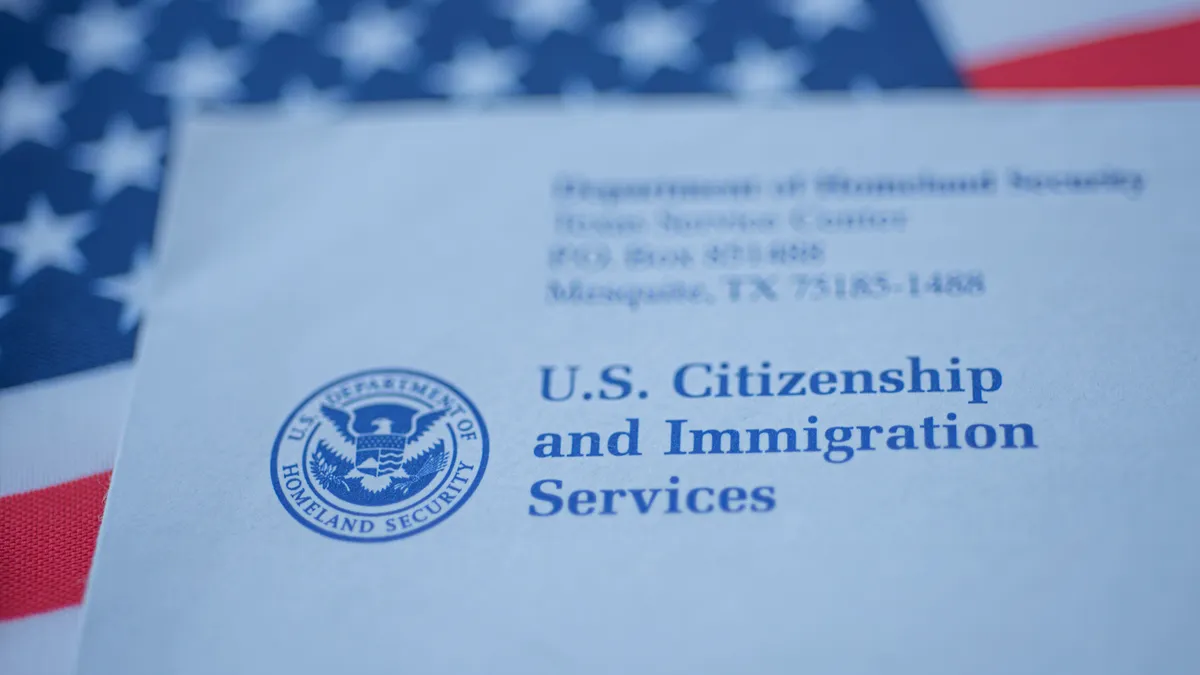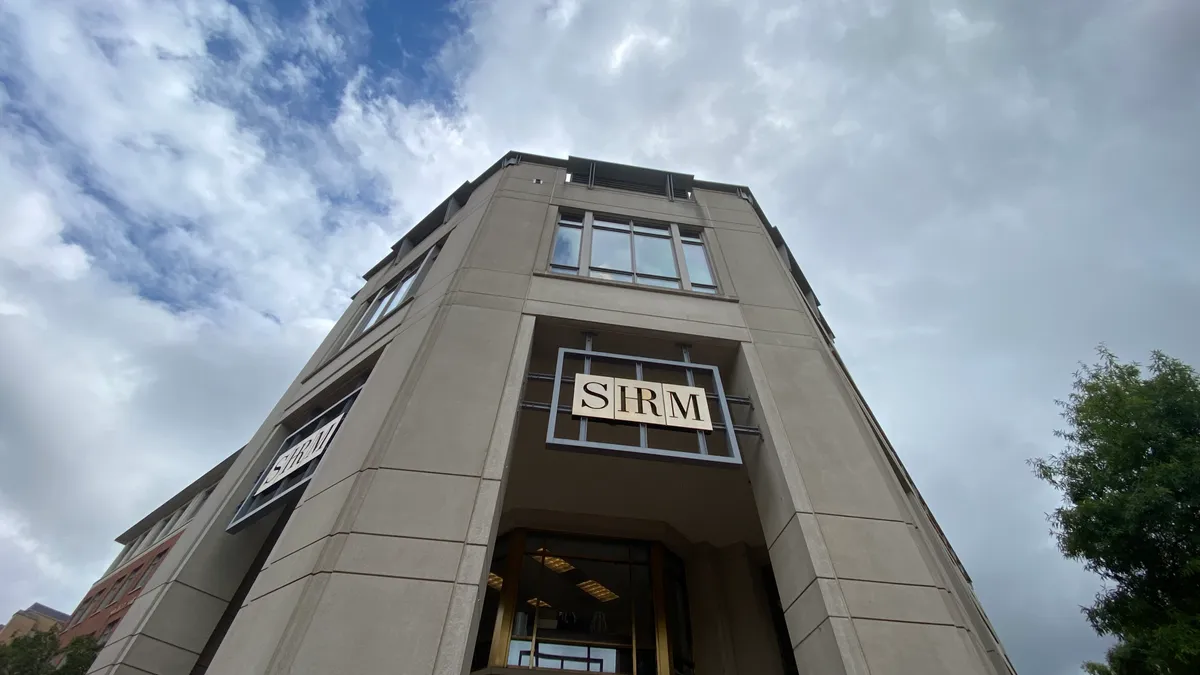Dive Brief:
- Almost one in four U.S. workers is at high risk for serious complications from COVID-19 if infected with the novel coronavirus, according to a new analysis from the Kaiser Family Foundation.
- The analysis estimated 37.7 million workers, or 24% of employed U.S. adults in 2018, are at high risk, including 10 million who are 65 years or older and an additional 27.7 million with pre-existing medical conditions.
- Many of that population are likely working remotely or unemployed following months of economic depression, KFF said, but would be at serious risk if they were to return to sustained in-person work. That could throw a wrench in employers' plans to reopen offices and resume a normal course of operations, even as more than half of states report rising COVID-19 infections.
Dive Insight:
Outbreaks at businesses like food processing plants and nursing homes have put in stark relief the challenges essential workers face within their place of employment. As more workplaces move to resume in-person operations, those challenges will encompass more and more non-remote workers, exacerbating a serious public health threat as states across the country kickstart their economies, despite COVID-19 surges.
KFF found more than 90 million adults are at higher risk for serious health outcomes from COVID-19 due to underlying health conditions or age. Almost 38 million of that cohort is employed — most of them full time — and likely face financial hardship preventing them from remaining absent from their job, if their employer wants them back.
"These data suggest employers should take into account the higher risk some workers will face, allowing them to work at home where possible, to be tested and to minimize their risks if they return to work," KFF President and CEO Drew Altman said in a statement. The U.S. Equal Employment Opportunity Commission (EEOC) has outlined how employers can invite flexibility requests without singling out workers based on protected characteristics.
An estimated 12 million more adults who don't work live with the at-risk workers, including 6.5 million people aged 65 and up and roughly 5.5 million at-risk non-elderly adults. KFF said the estimate was conservative, but still highlights how indirect exposure of the virus from working family members is a serious risk, too.
The estimates are based on KFF's analysis of a national health survey conducted in 2018. High-risk workers are qualified as those having risk factors outlined by the Centers for Disease Control and Prevention for worse outcomes from COVID-19, including:
- At least 65 years old
- Diabetes
- Heart disease
- Chronic obstructive pulmonary disease
- Asthma
- Body mass index above 40
- Functional limitation related to cancer
Widespread shelter in place orders beginning in March were meant to repress virus spread while giving public health agencies time to ramp up a coordinated COVID-19 testing and contact tracing infrastructure.
However, nearly five months into the national public health emergency, the country still lacks contact tracing infrastructure at the necessary scale to pinpoint new outbreaks and quickly tamp down on potential transmission, even as infections are increasing in at least 27 states across the South and West. COVID-19 hospitalizations have risen more than 10% in at least nine states since Memorial Day, according to data tracked by the Washington Post.
Major employers — especially those whose operations don't translate well to virtual work — are looking for ways to manage possible COVID-19 exposure in the workplace, including in-house contact tracers and at-the-door temperature checks.
Healthcare behemoth UnitedHealth Group partnered with Microsoft in mid-May to launch an app aimed at helping employers reopen their workplaces through COVID-19 symptom screening and result notification, though the availability of viable tests is a barrier to widespread testing, including in the workplace.
Roughly two-thirds of Americans think everyone should be tested for the disease before returning back to their jobs, according to a Monday survey by healthinsurance.com. But amid pervasive lockdown fatigue and the struggle to make ends meet in a tanking economy, more than half of Americans are comfortable returning to work, according to consumer insights firm Piplsay.















